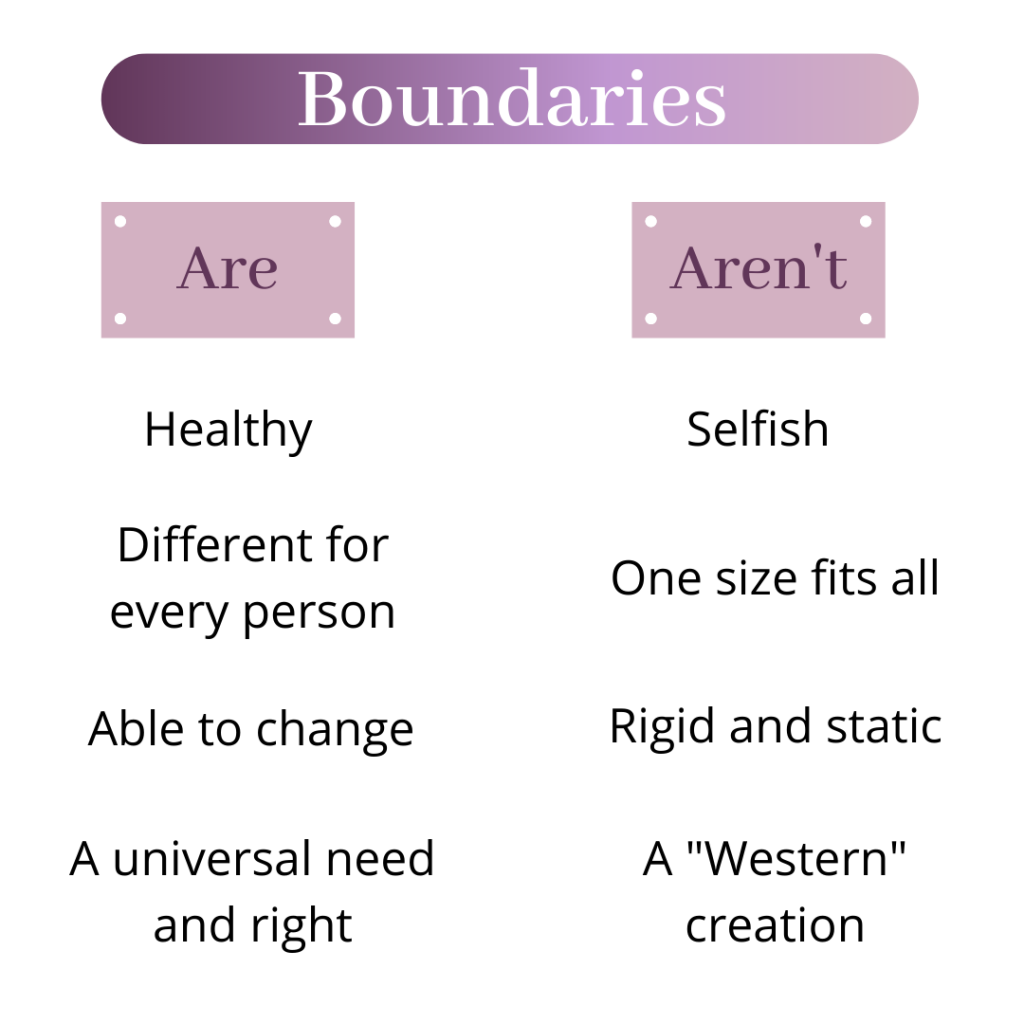
Repeat after me: boundary is not a bad word.
Boundaries are simply our limits. These limits can be in any area. And I don’t mean the farthest limit you can set. I mean the limit that makes you feel good. For example, a boundary that we are taught early on is about our bodies and who can/can’t touch us.
Many myths exist about boundaries & I’ve illustrated a few here. Boundaries are healthy & natural. We all have different types of boundaries.
This part is REALLY important. I often hear things like, “Boundaries are a Western thing” or “American thing” and THAT IS NOT TRUE. The concept of boundaries exist in every culture and subsequently they look different in every culture but that doesn’t mean they don’t exist.
What I think people are reacting to when they say such things is, “I don’t like boundaries because it means I don’t get to operate in my unhelpful & sometimes dysfunctional ways towards other people”. This outlook is also informed by the culture of origin but make no mistake, setting boundaries in even Western cultures is hard.
Within Muslim & South Asian communities, boundaries, particularly for women, are supposed to be non-existent, very flexible, or determined by others. Which presents problems for many of these women as their needs are not met, they don’t have an amount of space that works for them, and they are left without a sense of agency in their life.
As we begin boundaries week, I want you to reflect on the negative beliefs you hold about boundary setting. Write them down. And then evaluate them for truth. I might write down, “Boundaries mean I am selfish” as a belief. Then evaluating them for truth might read, “Asking for what I need & getting it makes me happier, safer, & more productive. That isn’t selfish”.
Share below: What have you heard about boundaries? What negative beliefs do you hold about boundaries?